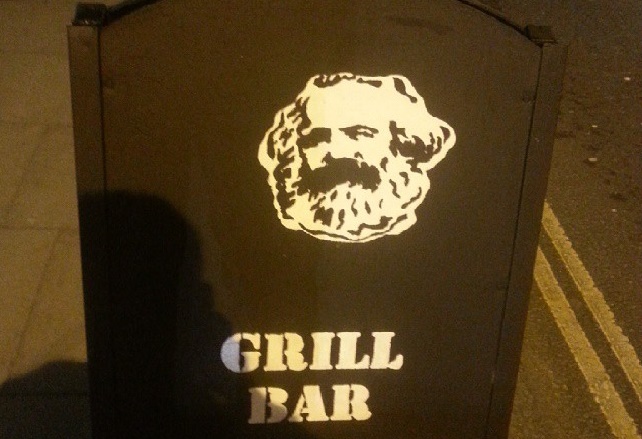
A friend recently described to me his reasons for no longer calling himself “left wing”. The British left may be a broad church containing (as Orwell had it) every kind of “ fruit-juice drinker, nudist, sandal-wearer, sex-maniac, Quaker, 'Nature Cure' quack, pacifist, and feminist in England”, but even the broadest church has orthodoxies. You’re either signed up or you’re not. There was no real point in fighting over definitions, he had concluded.
I was reminded of this conversation while reading Tim Lott’s article on left infighting in the Guardian, which inevitably for a plea for left unity, has provoked angry responses.
Lott lists his left-wing credentials (which he sees as “blue-chip”) - Labour voter, pro-National Health Service, anti-private education etc etc, and then lists the “questions” he thinks are “liable” to have him marked out as transgressive: questions about national identity, religion and the role of women in society: these he sees as “identity politics” issues.
I have sympathy with some of Lott’s arguments, for example when he says he is “not convinced jihadists have ‘nothing to do’ with Islam” - a glib assertion that has more to do with politics than analysis. It may be that to examine the theological standpoints of ISIS could give succour to Islamophobes, but that says nothing about the truth or otherwise of the proposition . I agree that people on the left are too quick to denounce (as is often said: the right seeks converts while the left seeks traitors), and that the web has accelerated this tendency.
But then there are parts of Lott's article that are just silly: his suggestion that the gender pay gap may be simply down to “the choices women make after having children as it does with patriarchy or prejudice” for example, ignores the fact that patriarchy and prejudice provide the context in which those “choices” are made.
This simple glossing over of context is a problem throughout the piece. Lott declares that he views himself as “English rather than British” as if he were the first person to do so, ignoring the attempts to form a progressive patriotism that have been made every generation since the Levellers.
He imagines the former cadre of the Revolutionary Communist Party, now reformed around the website Sp!ked, as the last vestiges of the left opposition - as if Brendan O’Neill were some modern-day Durutti - without displaying any real insight or knowledge of that group and why other left-wing people might dislike it for reasons other than its ability to “poke and prod at the sacred cows of the left but from a socialist rather than a rightwing populist position”.
Ultimately, Lott is hoist by his own petard: while railing against identity politics, he attempts to cast himself as a victim. It is he who is forced to self-censor, he who fears exclusion, he and those is his tribe whose identity is threatened. He stands an outsider, a “paradoxical voice”, when really all that’s happened is that he’s discovered that some people disagree with him, on issues with which he is not entirely au fait.
As I’ve said, as a white leftish man in my mid-30s, I can kind of see where Lott is coming from. As with my tastes in clothes and music, my politics were largely formed in my late teens and early 20s, and I assume my choices were correct then, and, crucially, will remain correct. But deep inside, I can hear the words of Abe Simpson, berating teenage Homer: “I used to be with it, but then they changed what it was. Now what I'm with isn't it, and what's it seems weird and scary to me.”
I wouldn’t feel especially superior about Lott’s feeling of disorientation: It comes to us all, in the end.